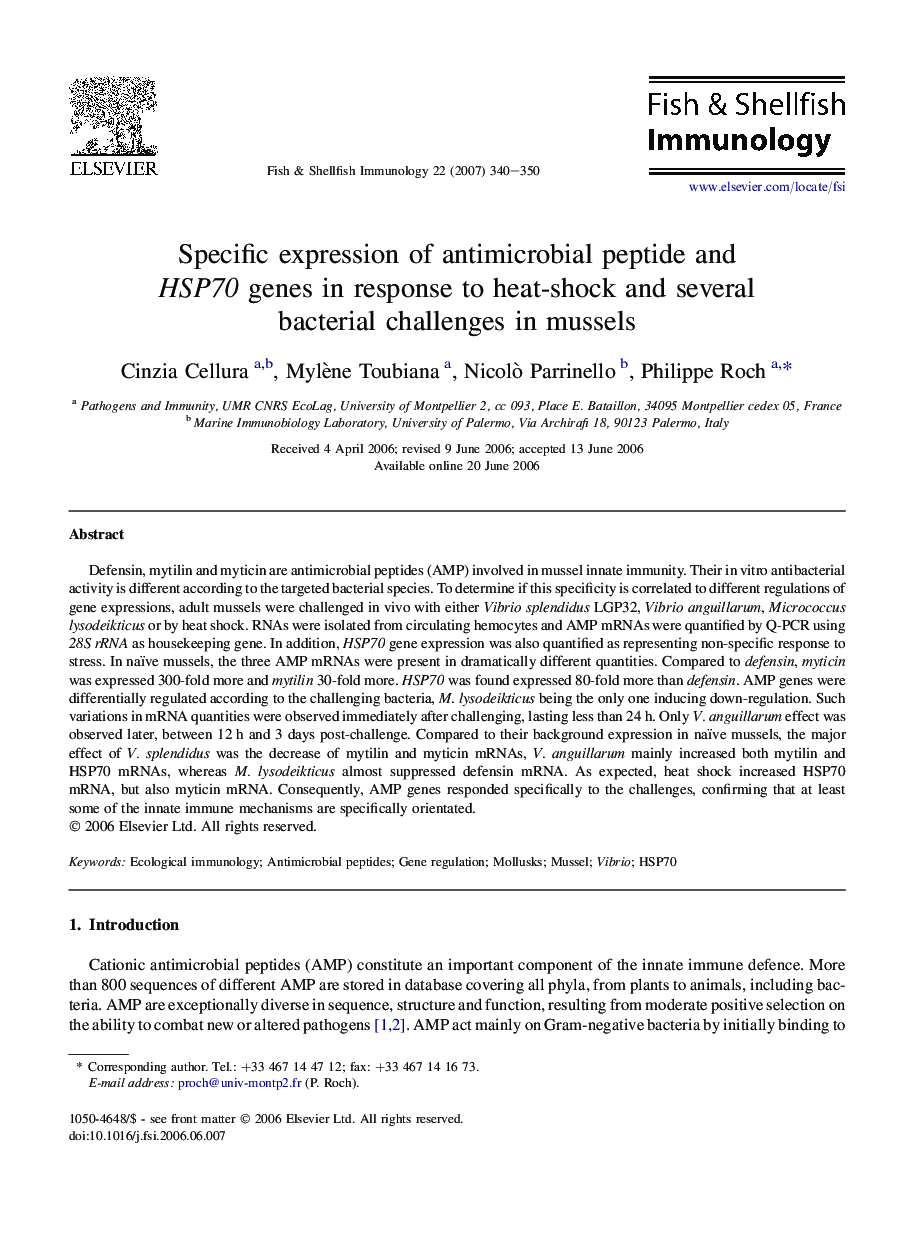| Article ID | Journal | Published Year | Pages | File Type |
|---|---|---|---|---|
| 2433500 | Fish & Shellfish Immunology | 2007 | 11 Pages |
Defensin, mytilin and myticin are antimicrobial peptides (AMP) involved in mussel innate immunity. Their in vitro antibacterial activity is different according to the targeted bacterial species. To determine if this specificity is correlated to different regulations of gene expressions, adult mussels were challenged in vivo with either Vibrio splendidus LGP32, Vibrio anguillarum, Micrococcus lysodeikticus or by heat shock. RNAs were isolated from circulating hemocytes and AMP mRNAs were quantified by Q-PCR using 28S rRNA as housekeeping gene. In addition, HSP70 gene expression was also quantified as representing non-specific response to stress. In naïve mussels, the three AMP mRNAs were present in dramatically different quantities. Compared to defensin, myticin was expressed 300-fold more and mytilin 30-fold more. HSP70 was found expressed 80-fold more than defensin. AMP genes were differentially regulated according to the challenging bacteria, M. lysodeikticus being the only one inducing down-regulation. Such variations in mRNA quantities were observed immediately after challenging, lasting less than 24 h. Only V. anguillarum effect was observed later, between 12 h and 3 days post-challenge. Compared to their background expression in naïve mussels, the major effect of V. splendidus was the decrease of mytilin and myticin mRNAs, V. anguillarum mainly increased both mytilin and HSP70 mRNAs, whereas M. lysodeikticus almost suppressed defensin mRNA. As expected, heat shock increased HSP70 mRNA, but also myticin mRNA. Consequently, AMP genes responded specifically to the challenges, confirming that at least some of the innate immune mechanisms are specifically orientated.
